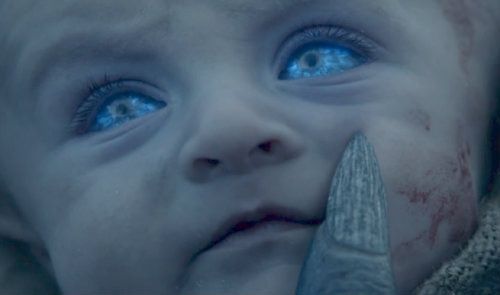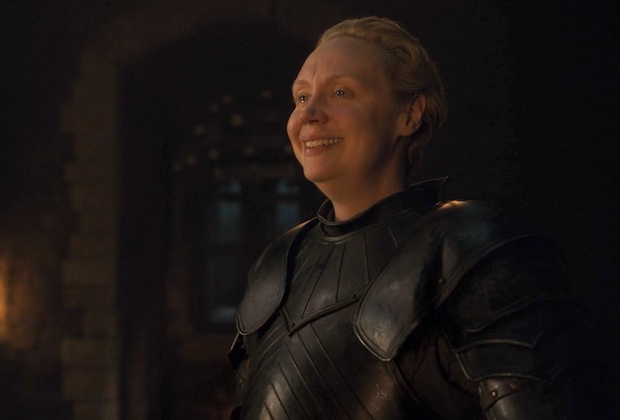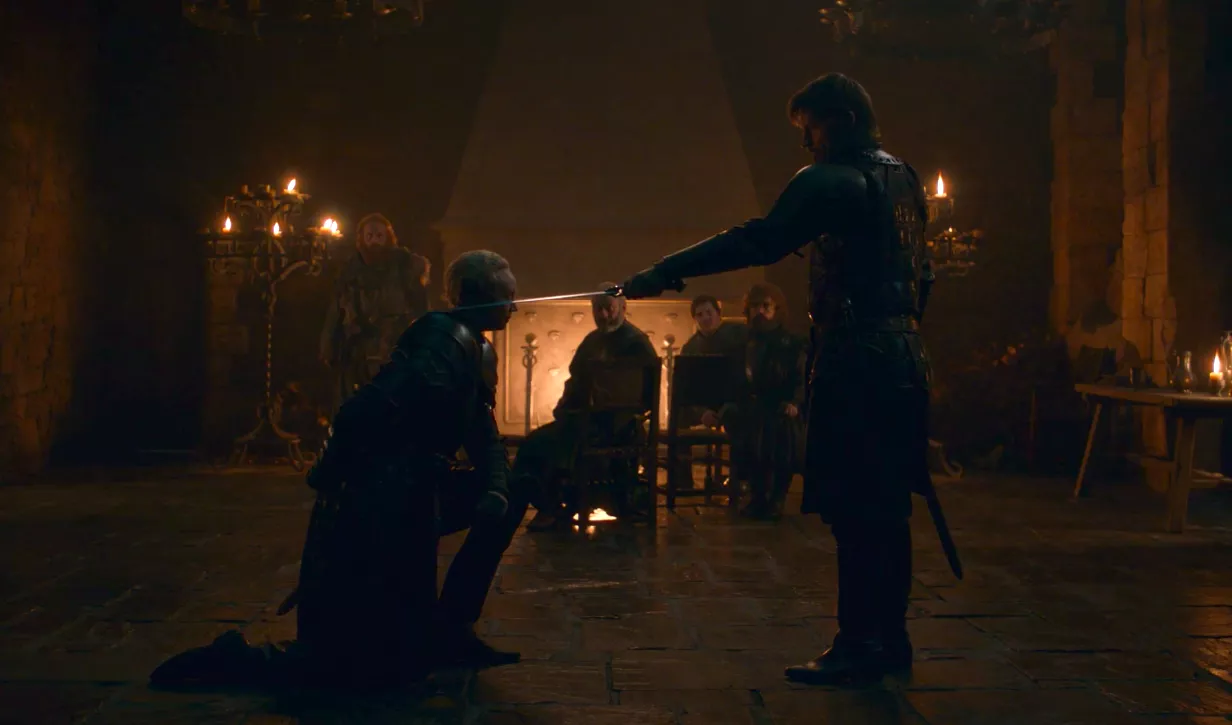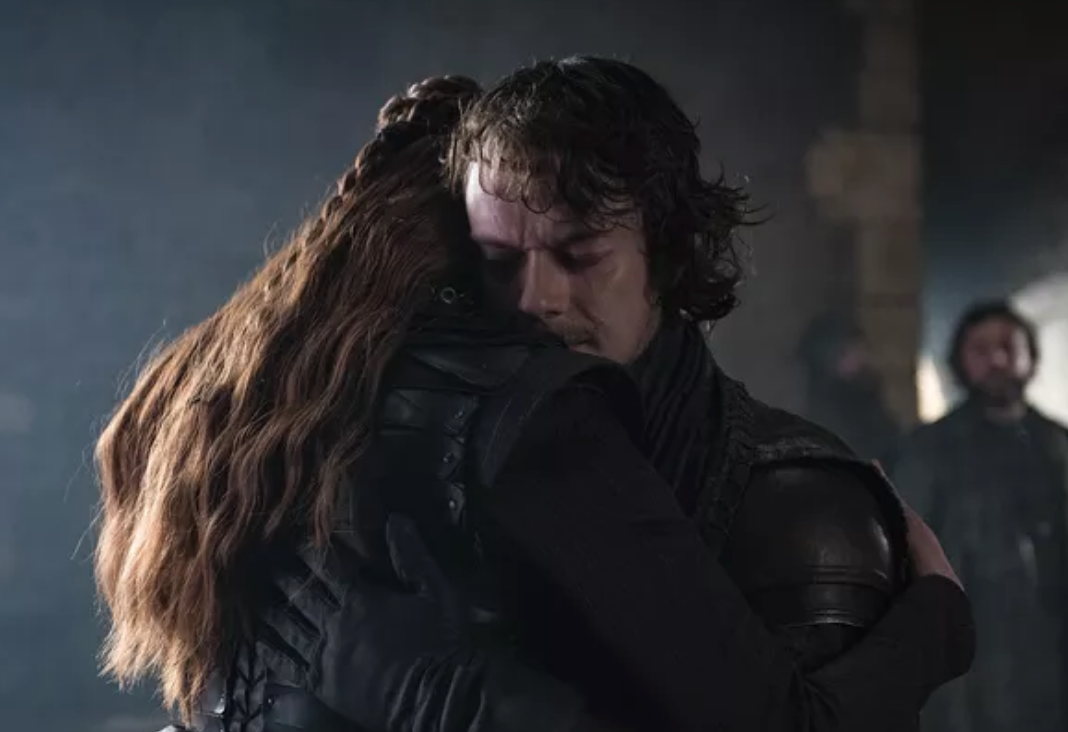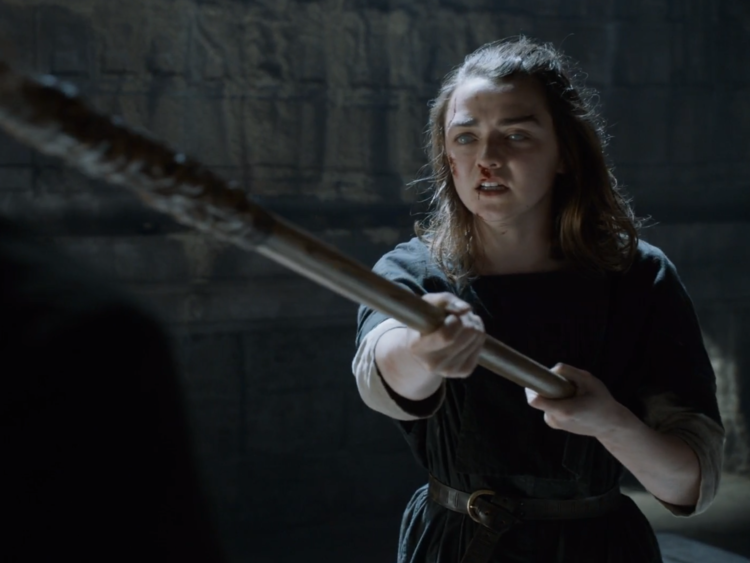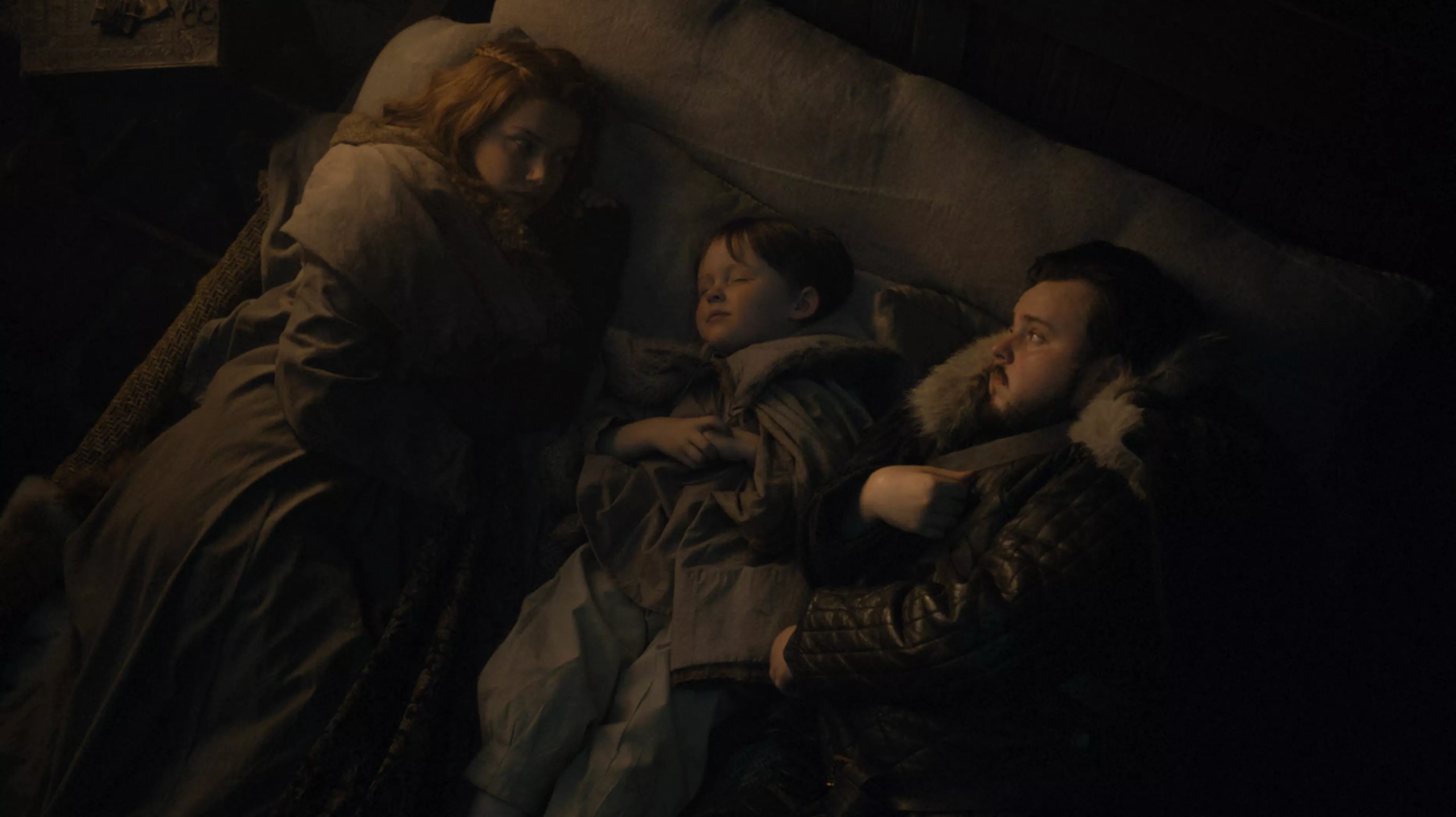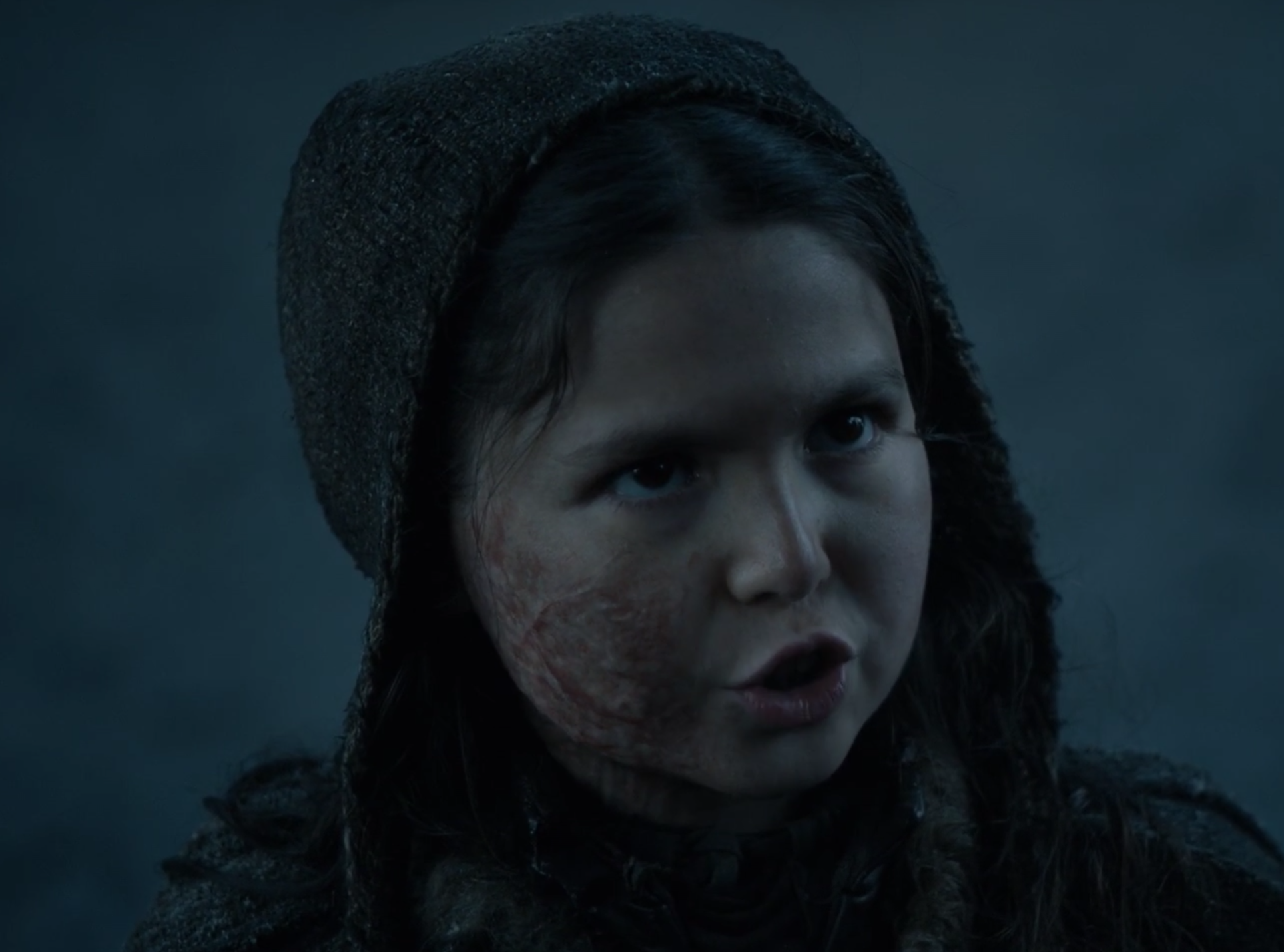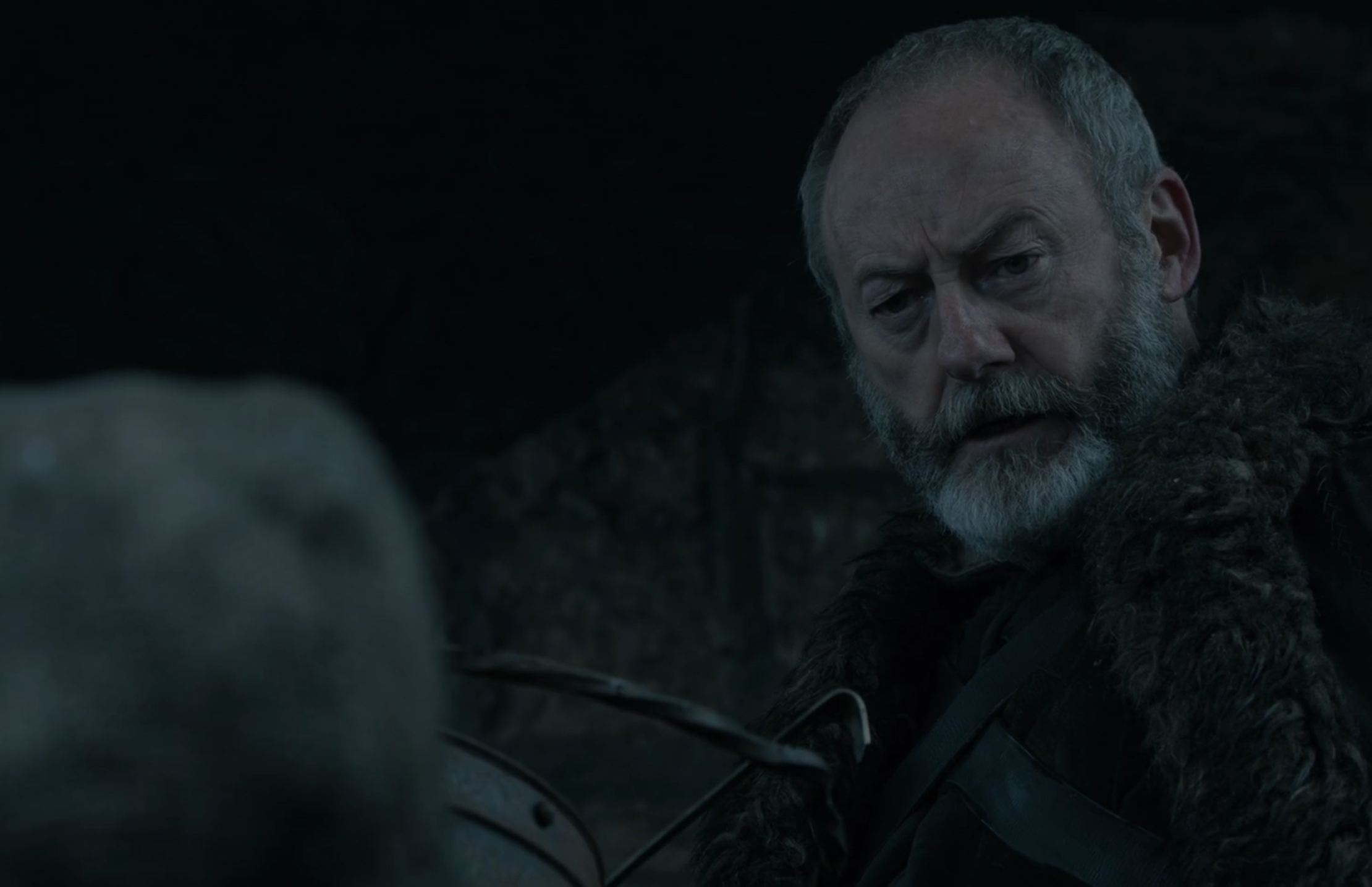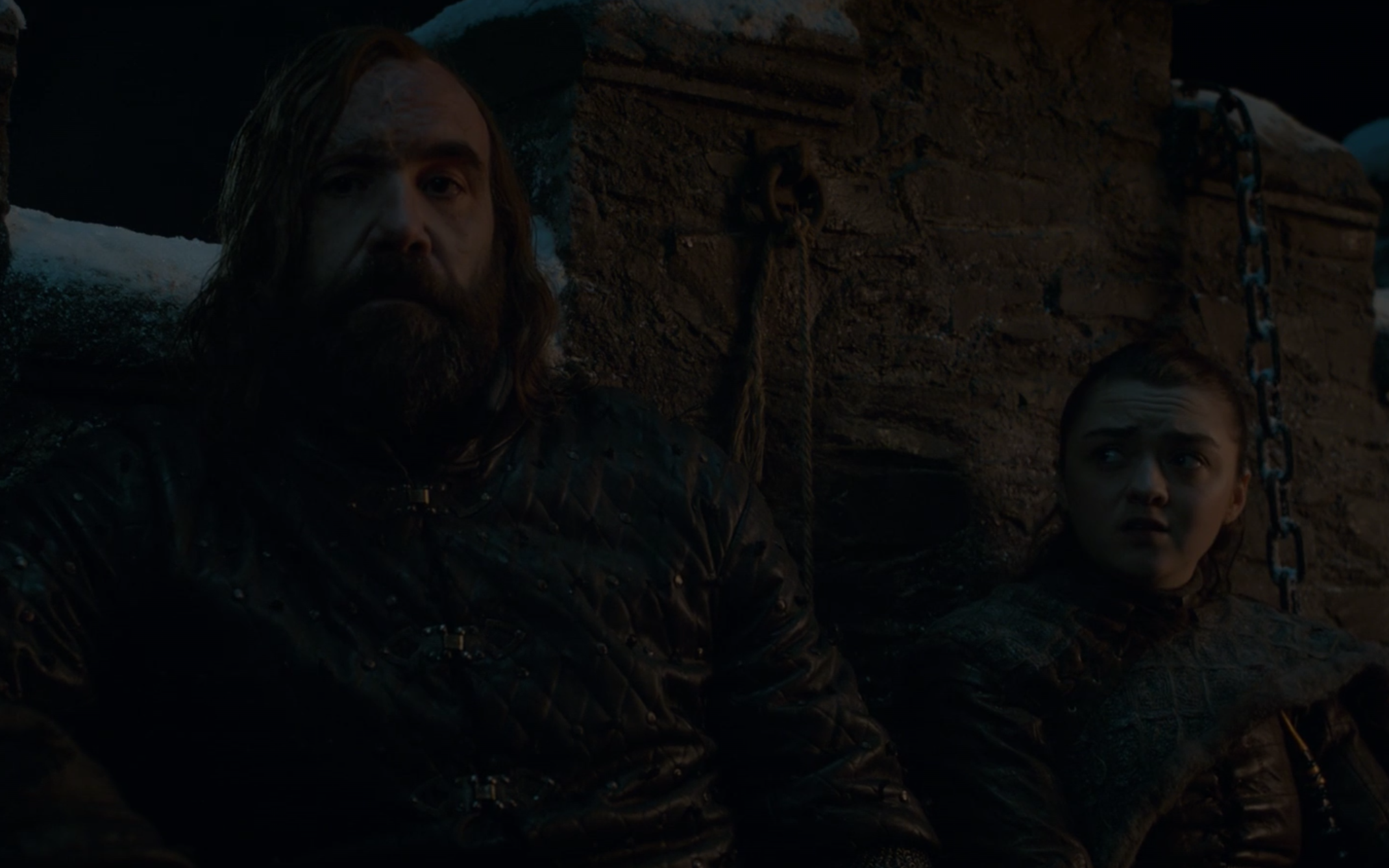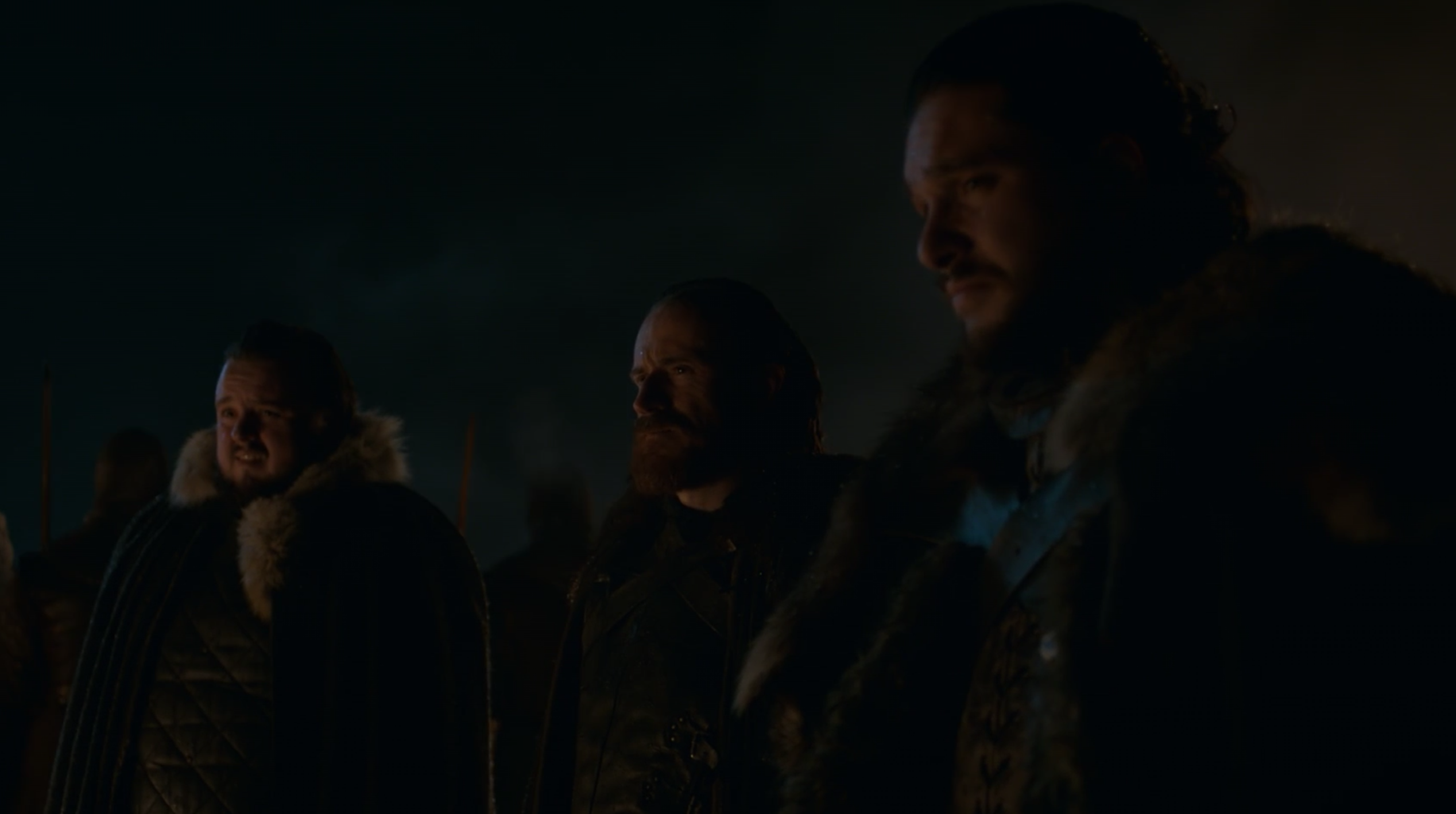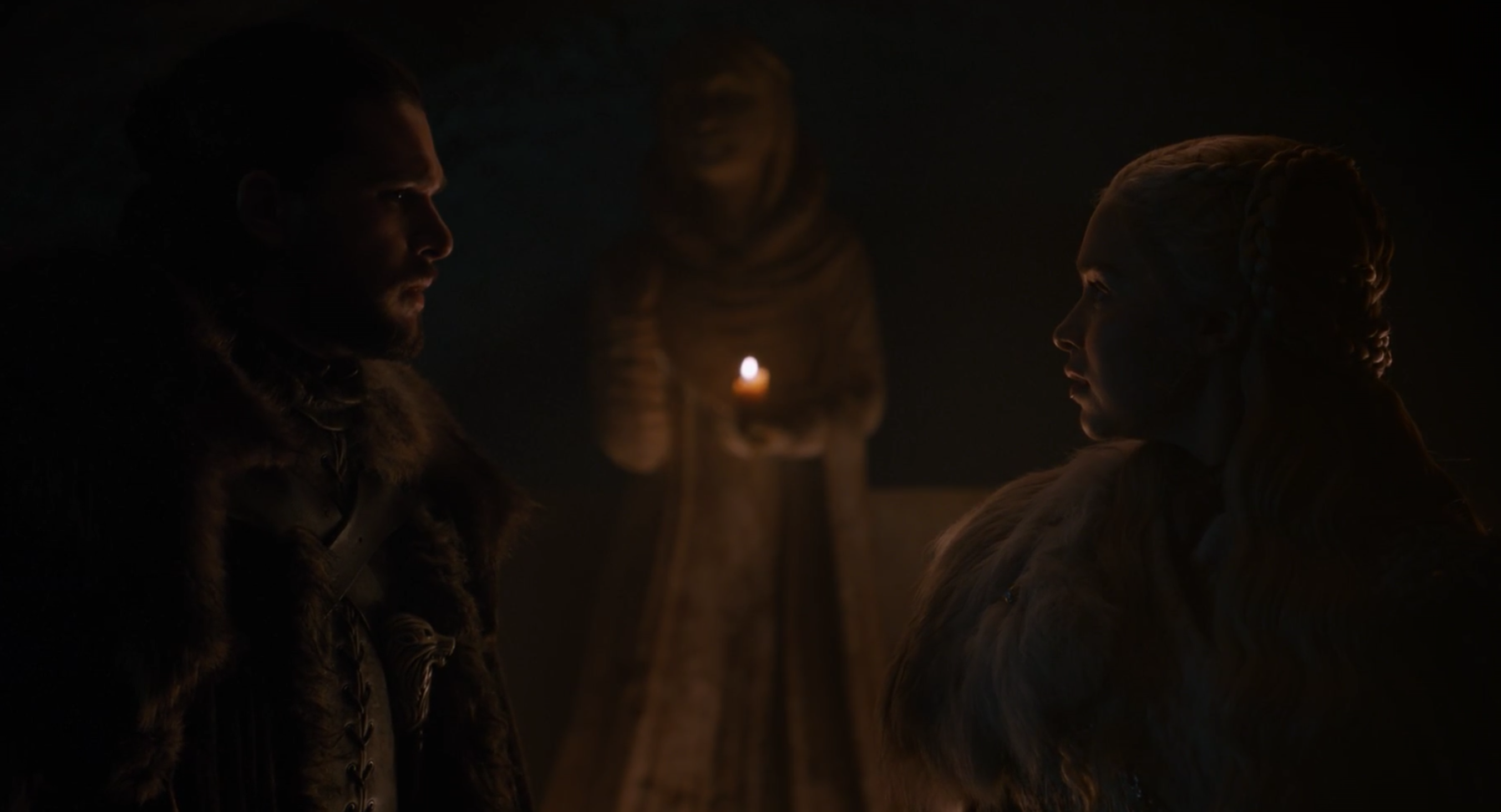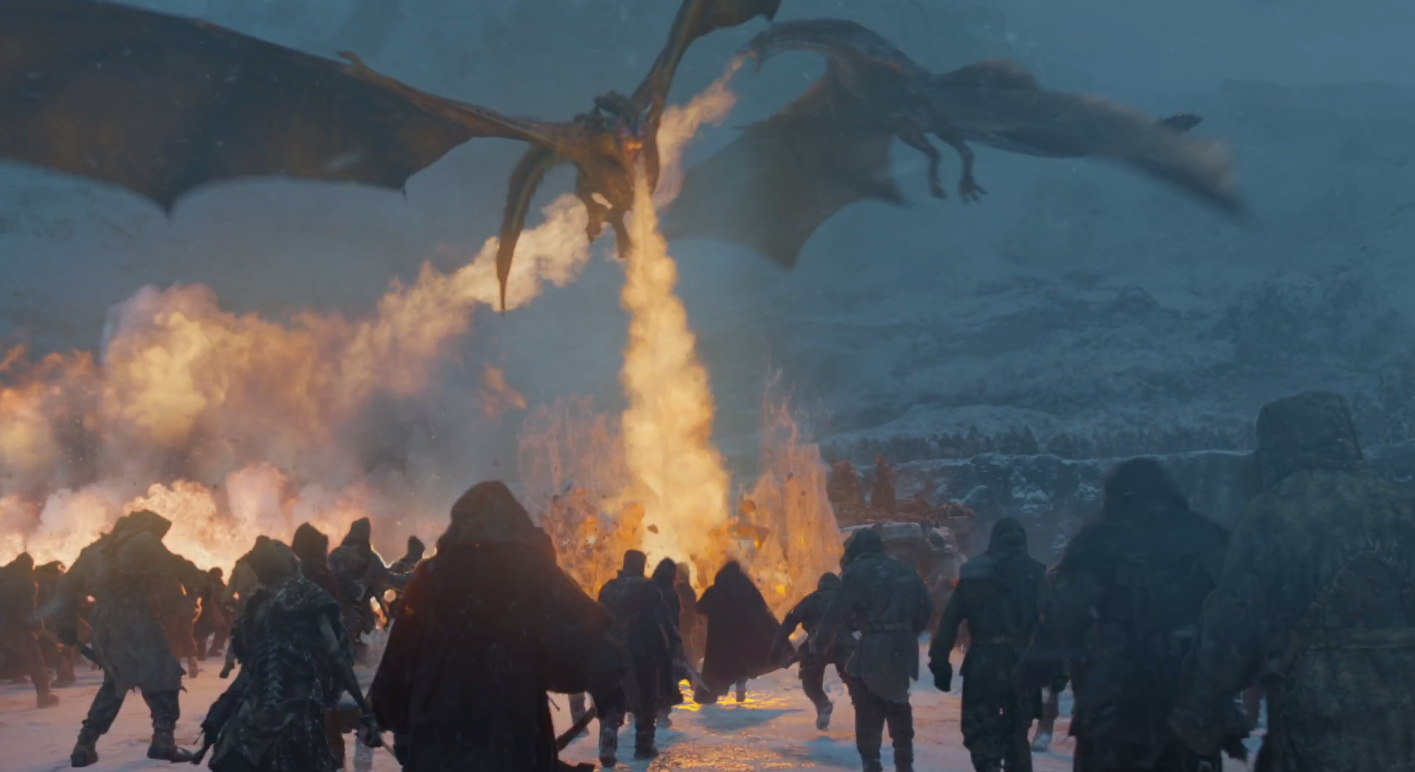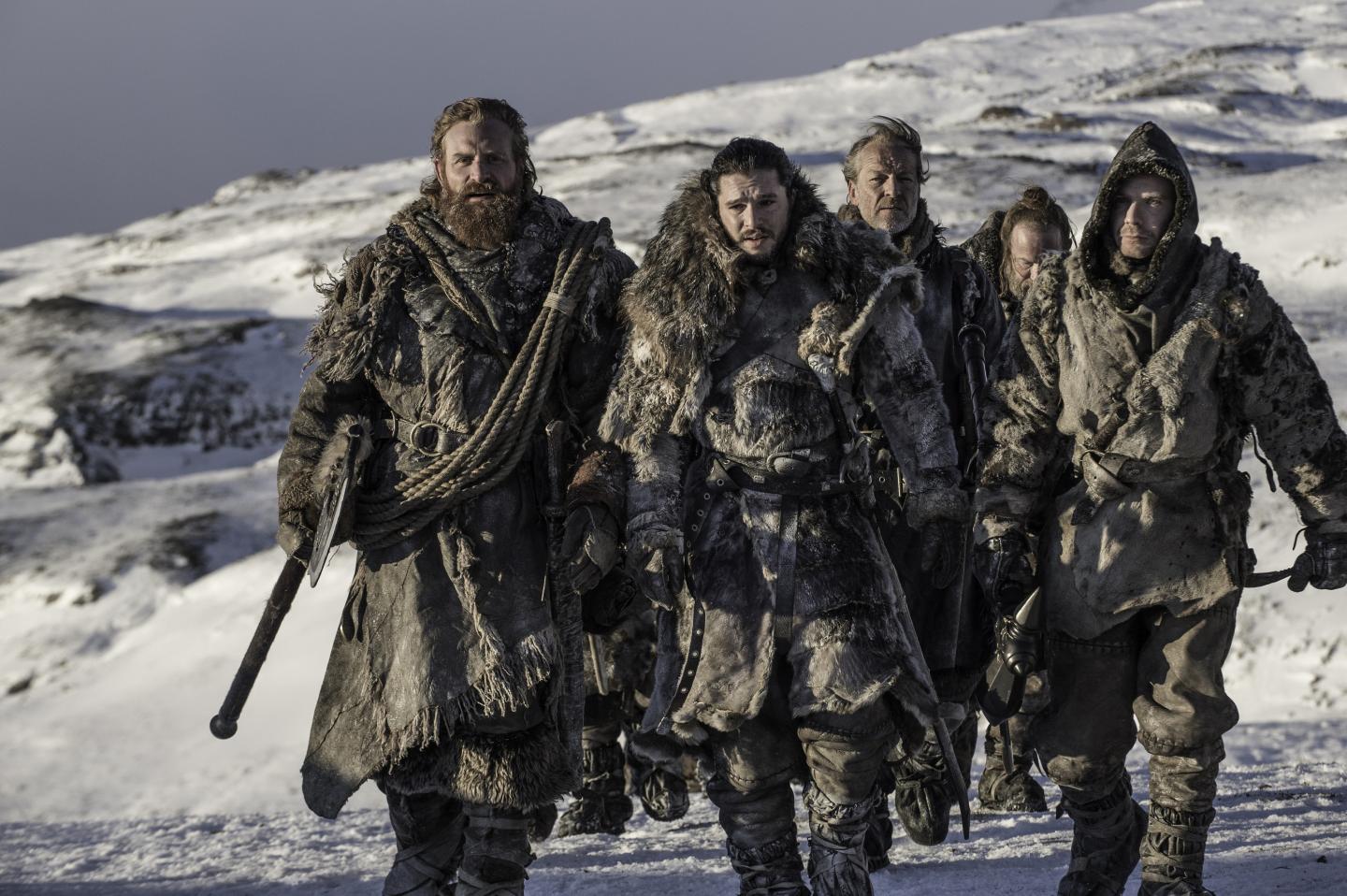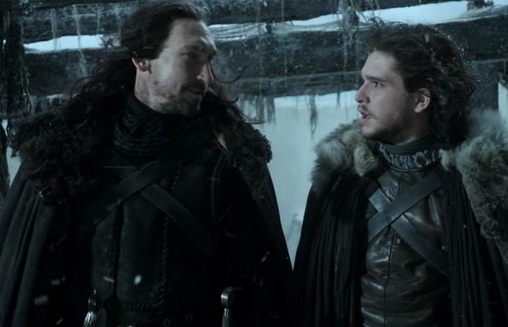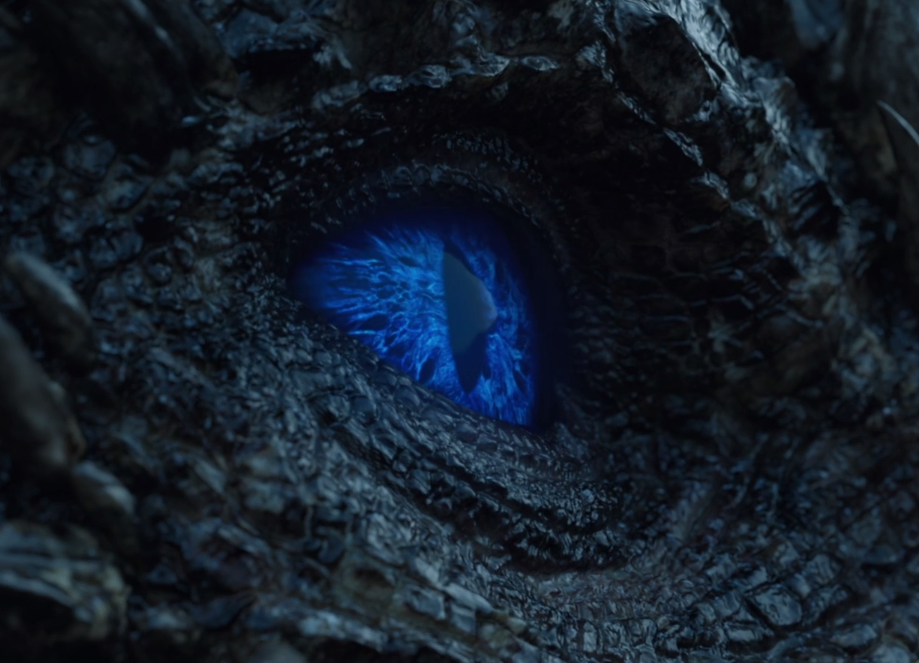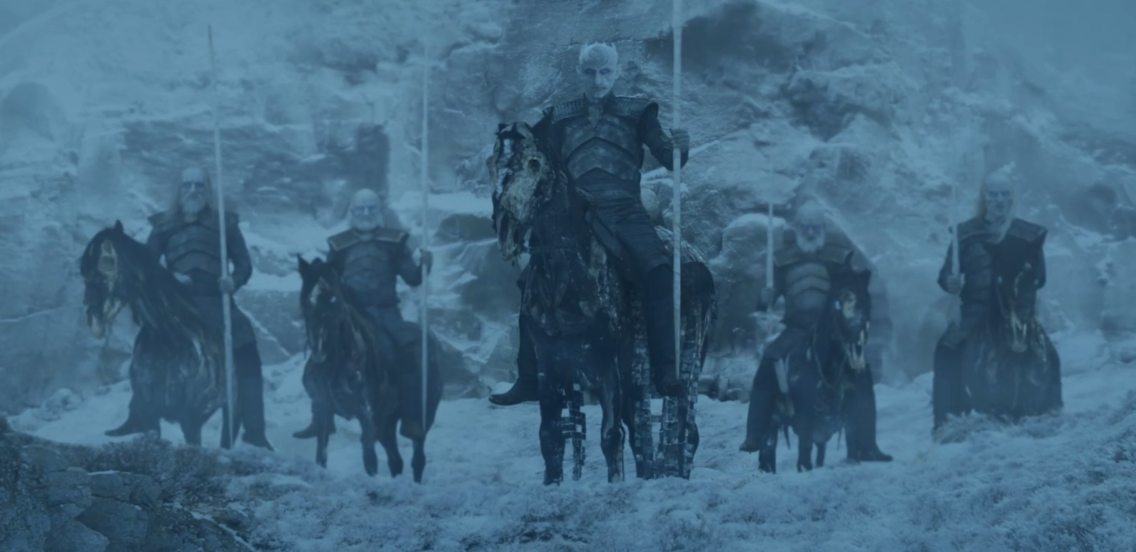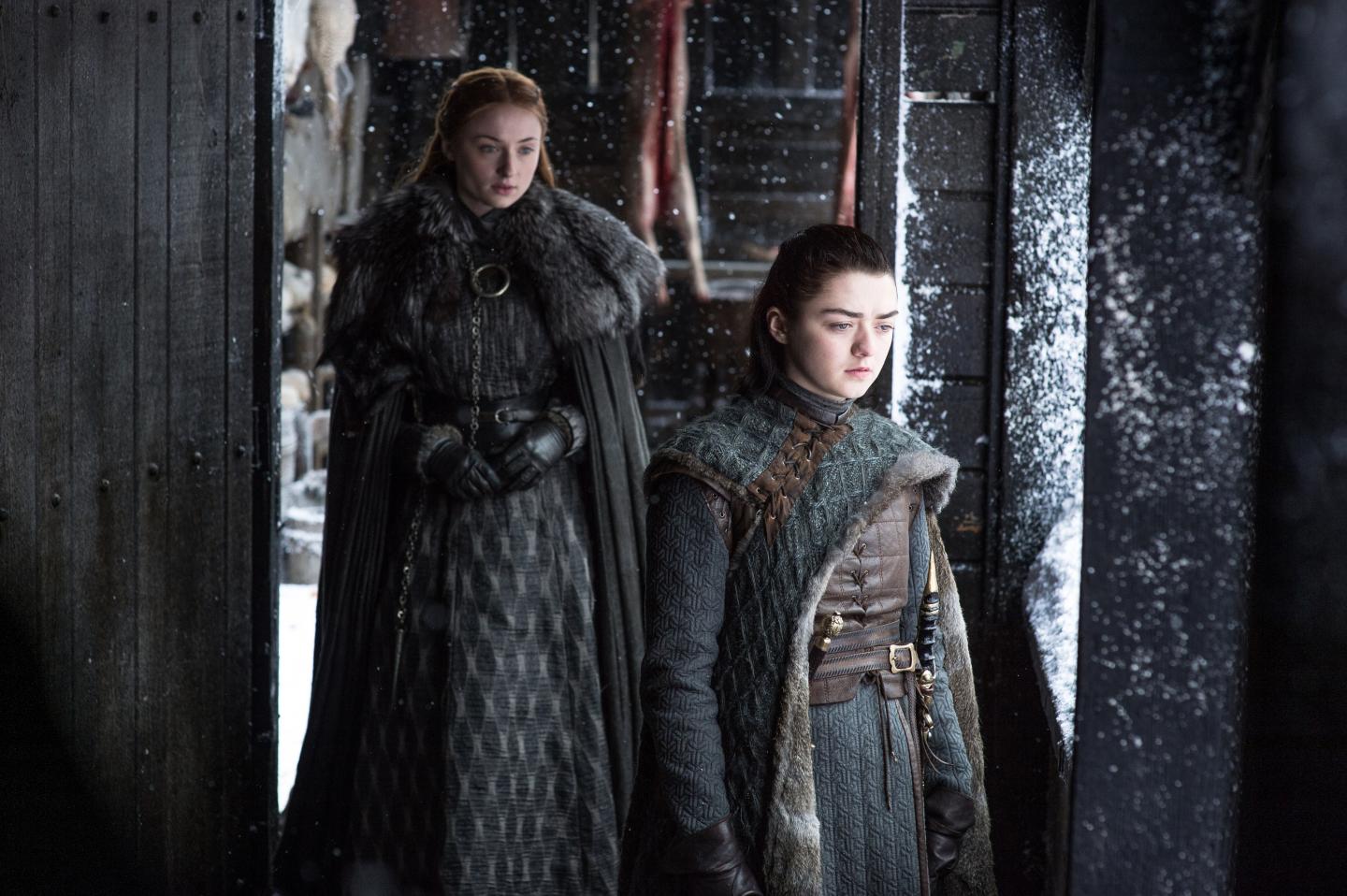DISCLAIMER: THERE ARE NO SPOILERS IN THIS ARTICLE. I HAVE NO KNOWLEDGE OF WHAT IS TO TRANSPIRE IN THIS STORY. ANY VIEWS OR CONTENT EXPRESSED ARE SOLELY PERSONAL THEORIES, OPINIONS AND INSIGHTS.
Moving On
After significant tragedy, many experience the five stages of grief and loss, which are: 1. Denial and isolation; 2. Anger; 3. Bargaining; 4. Depression; 5. Acceptance. Safe to say, after last week’s episode, I went through almost every one of these five stages. Denial was stage one; I simply couldn’t believe what I had witnessed. Truly, I actually had trouble believing that after all this time, after everything we had been conditioned to believe about what The Night King represented, that in the blink of an eye, he was gone…just like that. Next came stage two: anger. Had I wasted the better part of the last decade enveloping myself in a story that I wholeheartedly trusted was destined for an ending that could be nothing short of greatness? Stage three kicked in soon thereafter with bargaining. Wasn’t there something that could have been done differently? If only the writers knew what they were doing to us, wouldn’t they have offered a more satisfying ending? Stage four: depression. The black cloud lingered, and normal life moments would be interrupted by that depressing reminder that this had actually happened, and there was nothing I could do to change it. And finally, stage 5: acceptance. Unfortunately, I’m not quite there yet, but this week’s episode has helped me to take a step, if only a little one, towards accepting the disappointment of epic proportions that was thrusted upon us last week.
First, the bad: whatever hope was being held out that this week’s episode would offer some closure to the abrupt death of Westeros’ ultimate villain, was likely met with great disappointment. After The Night King’s unspectacular slaying, which was surely unbefitting of the world’s most terrifying villain, many hoped there would be more to his story in the follow-up episode. Of course, this was not an unreasonable hope, given that the Thrones story conditioned us to believe The Night King and all the mythological components tied to him were central to the ending of this story. Who was The Night King? Why, of all the humans, was he chosen by The Children? Did The Children know what they were creating when they inserted dragonglass into his heart? Sure, we were told of his desire to wipe out the world’s memory, but was that truly his only motivation? Was there no deeper connection between he and Bran/The Three-Eyed Raven? The list of questions can go on; but the answers do not. The story has moved on, and moved on quickly, from The Night King and all his legend…almost as if he never existed at all.
How could that be? How could we move on so quickly from the greatest villain known to mankind? Well, the answer presented tonight was quite simple: the greatest threat to mankind is not any singular individual, but rather the complexities and identities that live within each and every one of us. Don’t get me wrong, I will not defend this idea or the show’s decision to end The Night King’s story the way they did, leaving so many intriguing questions totally unanswered. In fact, I am now altogether dubious of an ending to this show that will satisfy the desires created within me to understand the more existential themes presented in this show that I thought underpinned the story’s true meaning (i.e. Ice vs Fire, gods and religion, light vs dark, The Children of the Forest, etc..). But, we all must move on. Even though when compared to the battle for humanity’s existence, a battle between mere mortals for a throne feels like the wrong battle to be “the last one,” I have to admit that this episode started to reinvigorate some excitement. After last week’s episode, I felt completely deflated; after this week’s episode, only partially.
I am also rather dissatisfied with the overall soap-opera feel of the show. There’s no question that the writing has gone considerably downhill, ever since the show surpassed the books in season six, and writers have more or less been on their own. The speed of various character journeys and storylines has felt jumbled and bumpy at times. There’s a bit of drama that I feel is beneath this story, and certain characters have just started to feel a bit too winey.
All that said, I generally try to measure the quality of a story, or a given episode, not by how much or little I “liked” it, but rather by how well it succeeded at whatever it was trying to achieve. Following last week’s Battle of Winterfell, this follow-up episode had one clear goal: to turn our attention towards, and build suspense for, the final battle to come. And to that end, this episode was a great success, certainly achieving its intended purpose. So much so, that The Night King feels like old news, and I’m inching closer to that fifth stage of acceptance (well, only sort of).
A week ago, it felt like intra-human dynamics were irrelevant, and all that mattered was humanity banding together to preserve its existence. It was a homogenous and uniform view of the human race — that is, all humans were basically the same, coming together as one massive force to. One week later, and we are at the opposite end of the spectrum — the varied and often divergent spirit of human nature is highlighted. We are quickly reminded of the complexities of the human way, and the way these complexities can cause great divide amongst characters in this story. And while we can analyze each of the last two episodes independently, the true beauty is realized when taken in tandem. Only when forced to band together to fight for its existence could mankind show union and cooperation. The moment that threat is eradicated, we are back to seeing the truth of human nature — one that reminds us of mankind’s inherent propensity to create, perceive, and rationalize reasons for divide. The human inability to stand together unless out of necessity is indeed a sad reminder of the world we live in today. Nonetheless, bravo to the success this episode achieved in highlighting the often flawed nature of humanity, while building a wonderful sense of suspense for the final two episodes of this story. Let’s dig in:
Identity
As grave a threat as was brought about by The Night King’s army, it allowed most characters to temporarily suspend their more intricate cognitions and individual identities. Whose side will I take? With whom can I create an ally? How can I advance in this game? None of these questions mattered as fighting to live took precedent over all. But as that threat abruptly disappeared, characters were immediately thrusted back into decision-making mode. Allegiances, loyalties, secrets, love — all of these behavior-shaping ideas — immediately came back into play. And as they did, we saw several characters navigate the complexities of their “humanness,” in an attempt to make a decision that felt right to them.
We saw this theme start to play out after Dany names Gendry Lord of Storm’s End, the historic great castle of House Baratheon. Without hesitation, Gendry asks Arya to be his wife so that he can share life’s offers with the woman he loves. True to her self, Arya turns down his proposal, reminding us that she has never been a lady. In a Thrones world where so many characters are battling to figure out their true identity, Arya knows hers quite well. This, of course makes great sense, given the years she spent training in Braavos, when “a girl had no name,” and was forced to examine the truth of her identity. She emerged more connected to her truth and sure of her identity than probably any character in this story, giving her the strength and resilience to do great things.
But while Arya’s perception of self might be iron-clad, the same cannot be said for all. Jaime’s character continued along his complex character-journey, one that has been marked by a conflicting self-identity. As Jaime reminded us in this episode, he did terrible things in the earlier days of this story, including crippling Bran and murdering innocents, all in the name of love. But then something changed. His identity, which was largely built upon a representation of him being a great warrior, was torn down when he lost his fighting hand — and lost it as a result of him protecting Brienne. Literally and figuratively, his identity changed overnight, and we started to realize that perhaps the handsome knight willing to do anything for Cersei was just a mask that he wore, and there was a lot more to the truth of his character. In a powerful scene between he and Brienne, we saw great pain and vulnerability, and realized that there was a lot more to the man we had come to know only as The Kingslayer.
Eventually, Jaime fell back in the hands of Cersei, and it was unclear whether the “good guy” or “bad guy” Jaime would prevail (though, in reality, the point is that there really is no good or bad to human nature, only the complex makeup of each human, as we see in Jaime). This week, Jaime and Brienne finally lay together, which seemed to have cemented the side that Jaime would ultimately fight for in the battle to come. But after hearing word that Cersei had killed one of Dany’s dragons and realizing the imminent attack that Dany would bring to King’s Landing, Jaime decided he must return to his sister (or at least, that’s what he tells Brienne).
Brienne begged Jaime to stay, reminding him that he is a good and honorable man, only for him to remind her, in heartbreaking fashion, that he is in fact, anything but. This was devastating on so many levels. First, it was painful to hear Jaime profess how low he truly thinks of himself. Often, identity is less about how others perceive you, but more about how you perceive yourself. Of course, many are not even aware of their true self-perceptions, and if they are, often struggle to acknowledge them. But in this moment, Jaime is not only true with Brienne, but true with himself. He tells Brienne, and himself, that he essentially believes himself to be a terrible person. In this Thrones story, Jaime is the closest thing to a Greek Tragedy. In so many ways, he is a tragic hero; his greatest flaw, his massive vulnerability that prevents him from realizing the good man that he is. And can you blame him? After being casted out as “Kingslayer” and “Oathbreaker,” for so many years, is it really any surprise that his self-esteem is nonexistent? Sure, on the outside, he has worn the mask of knight in shining armor well, but beneath it, he is deeply pained by the wrongs he has committed, so much so that he believes there to be no good in him at all. The worst part? All the crimes he committed were to protect the ones he loved; at no point did he do any evil out of malice or selfish motives.

And while Jaime’s story is incredibly tragic, perhaps this moment is even more heartbreaking for Brienne’s character. For as long as we’ve know Brienne, her identity has been defined by a total lack of femininity. For all intents and purposes, Brienne has been characterized as a man, from her appearance to her desires. This very episode highlighted that idea by calling out her virginity — after all of these years, she had never even lay with a single man. Yet, Jaime changed all of that. And while their sleeping together certainly has significant physical meaning for Brienne, it really underscores the emotional tie between the two characters. If Jaime was the tragic hero unable to see the good in himself, Brienne was the one person who understood his vulnerabilities, and truly knew the honor that lived within Jaime. Coupled with the fact she truly loved him, it was not enough for her to know he was a good man — she needed him to know it as well. Several times throughout this story, even when on opposing sides, Brienne has reminded Jaime of his goodness. Often, it almost felt like a plea, like she was begging him to realize the same.
And finally, as the story is headed towards its closing moments, it seems as though Jaime has settled into the idea that he is in fact a decent man. He has chosen the right side, he is going to remain at Winterfell, with the woman who loves him — all is well. Absolutely nobody could be happier about this than Brienne herself, knowing that not only has she received love back from the man she loves, but she has finally gotten him to realize his goodness. But, in typical Thrones style, everything changes with the flip of a switch, and Brienne’s world is turned upside down as she finds Jaime set to depart Winterfell in the middle of the night.
A character who rarely displays any emotion, Brienne is devastated, tears streaming down her face, as the man she loves is leaving her, and reminding her of what a horrible person he believes himself to be. His words go in the face of everything she has believed; in many ways, her world is turned upside down. For the first time, Brienne let herself be vulnerable; vulnerable to love, vulnerable to her femininity, vulnerable to emotion — and it all came crumbling down. How truly heartbreaking. I can only hope that Jaime ends up on the right side of this fight, if not to see his story end realizing his own heroism, than at least for Brienne’s sake, so that she doesn’t lose the man she loves to a false sense of identity.
The complicated nature of the human makeup and identity continues to shine through elsewhere in Winterfell. Sansa continues to display a mistrust for anybody outside of her family, putting her at great odds with Daenerys. When we size up Sansa’s identity, it’s a pretty simple diagnosis. Her trust was betrayed by so many at such a young age, from Cersei and Joffrey to Ramsay Bolton to Littlefinger. At this point, how could she ever trust anybody other than her own? In an exchange between her and The Hound, he tells her that she should have left King’s Landing with him when she had the chance — had she done so, she would have avoided all those that wronged her along the way. Sansa responds to The Hound, telling him that had she left with him, she would still be “a little bird” today. You can watch the video below, from season two, when The Hound tried to save Sansa from King’s Landing.
Sansa’s response to The Hound makes it clear that she understands who she is and has grown smarter from all those that have wronged her. But, one must ask the question: is it advantageous to be guided by a general distrust for all those around you? Sure, being able to outsmart others is a good thing, but not being able to trust anybody outside of your family, maybe not as much. And this is the very conflict that will soon reach climax, between her and Jon. While Jon wants to honor his Queen Daenerys, Sansa is unable to trust Daenerys, or even trust Jon who is willing to vouch for her. Interestingly, Arya has picked her side in this conflict, and strongly voices her distrust for Daenerys as well.
And, all of that is before they even learn that Jon is not in fact their brother, but rather their cousin. Though the scene cuts away, Jon tells Bran to reveal the truth of who he really is to Sansa and Arya. This news only serves to embolden Sansa’s distrust for Daenerys, as learning Jon’s true identity also reveals that he, not Daenerys, is the rightful heir to the throne. Sansa’s identity, largely defined by her inability to trust anybody, is at odds with her loyalty to family, and she is going to have decide between the two. From her conversation with Tyrion where she reveals she thinks there is somebody better than Daenerys to to rule, it seems as though she will not be able to shake her achilles heal, and this is going to set up a very tricky dynamic in the final episodes, where Jon and Sansa may actually find themselves in direct opposition.
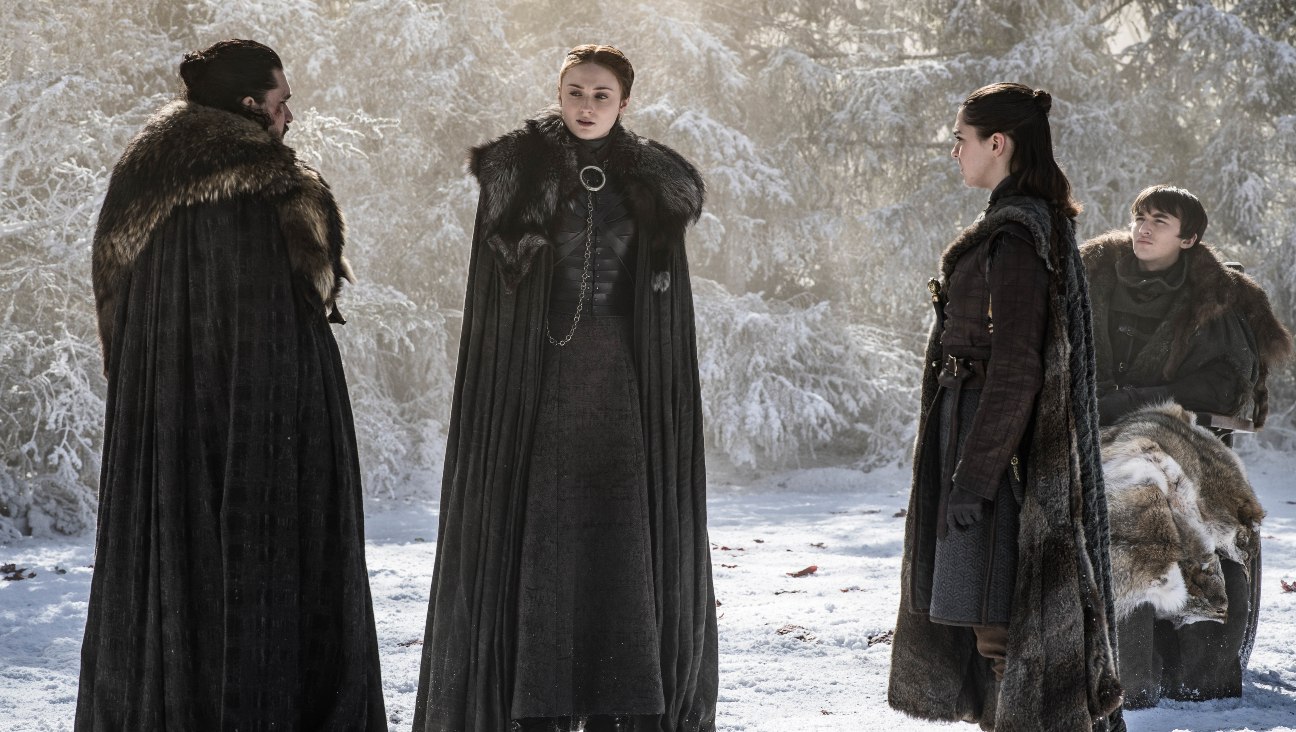
As the episode continues, we see Jon’s secret quickly starting to spread — a secret that Dany begged him to keep. But, Jon, being the honorable (and sometimes foolish) man that he is, decided he must tell his sisters. Sansa broke her oath to keep this secret, by telling Tyrion, who then told Varys. Rightfully so, and as Dany predicted, this news is already starting to cause greater divide, at a time when Team Dany/Jon can ill afford it. Sansa and Arya are not the only ones starting to defect from Dany’s claim to the throne. Varys, pointing out that Jon is the rightful heir, a male, and more even-tempered, also now believes Jon is the one to be backed, not Dany. Though Varys and Tyrion have generally seen eye to eye, their sense of identity will bring about an abrupt departure. While Tyrion is defined by his ability to see and support the best in others, Varys’ identity is centered around protecting those who cannot protect themselves. Born a pauper and sold to a sorcerer who committed terrible acts to Varys when he was just a boy, Varys now uses his cunning to try and “protect the realm.” He and Tyrion now have differing views of who is best suited to do this, and Varys makes it clear that he will do what he must to protect those in need. Keep an eye out for what Varys’ next move will be.
Fire and Blood
And just as the episode was starting to feel like it was going to be another setup for next week’s battle, things go haywire. Things go from bad to worse for Dany, and out of nowhere, Rhaegal is taken out with three harpoons. Dany can do nothing but watch as she loses yet another one of her children. In a state of blood-seeking fury, Dany flies her dragon straight into the danger, but eventually retreats as she cannot risk losing her last dragon. Euron’s fleet destroys Dany’s ships, and in doing so, takes Missandei prisoner.

At this point, Dany has had enough. Her plan to show restraint and minimize the loss of innocent life is not working. In the span of days, she lost Jorah, one of her most loyal advisers; her entire Dothraki army; half of her Unsullied army; the second of her three dragons; and Missandie, her most trusted adviser. Things have gone from bad to worse, fast. Though Tyrion and Varys beg her to continue to show restraint and to not pursue Cersei at the cost of killing thousands of innocents, Dany is at her breaking point. She agrees to offer Cersei the opportunity for surrender, so the people of King’s Landing can know that it was Cersei who refused surrender.
In a powerful final scene, Tyrion makes one last desperate plea, first with Qyburn, and then directly to his sister. In this plea, we can feel just how badly Tyrion truly wants to avoid the loss of innocent life — something we can see he knows is imminent. But even Tyrion’s clever words are not enough, and Cersei gives him a big “f**k you” by not only refusing surrender, but beheading Missandei first. The pain felt by Dany and Grey Worm was palpable; and the look on Dany’s face was clear as day: all bets are off. Fire and blood is coming, which begs the question, will she become The Mad Queen, just as her father was The Mad King? Clearly, this is Varys’ concern, but which side of Dany will prevail? The one that has defined her identity for many years — the one that wants to leave the world a better place than she found it? Or will her Targaryen wrath prevail and will her desire for revenge get the better of her? With just two episodes remaining, things are more up in the air than ever before, and great battle is upon us.

Odds and Ends
- Jaime and Cersei: It’s worth pointing out, that it’s possible Jaime was tricking Brienne in order to get out of Winterfell, perhaps to get to King’s Landing to kill Cersei himself.
- The Hound and Arya: The ultimate duo are back together again on their way to King’s Landing. They both have unfinished business, namely killing their ultimate foes. Arya will surely want to be the one to take out Cersei and cross that name off her list. At the same time, The Hound will want to take out his brother, The Mountain, who burned him as a young boy and is responsible for all the identity issues that The Hound suffers today.
- Other Allies: Though Dany’s forces have been significantly diminished, there are other allies out there. In this episode, it was mentioned that a new Dornish Prince has declared for Dany. Dorne has not played much of a role in this story as of late, but it’s safe to assume that they will show up in the final battle. It’s also worth remembering that Cersei still has Ellaria Sand and her sandsnake daughter locked in a cell beneath King’s Landing. Presumably, they are not yet dead, and could have a role to play as well. Yara Greyjoy is also still alive and has retreated to The Iron Islands — additional allies for Team Dany.
- Bronn: A character I’ve generally enjoyed throughout the show, I was disappointed to see Bronn turn on Jaime and Tyrion. I’m not quite sure how his story finishes up, and with only two episodes to go, and it doesn’t seem very relevant that Tyrion promised him Lordship over Highgarden if they win the war. But, we’ll see how this one develops.
- Cersei’s Baby: It’s unclear what’s happening here. Question 1: Is Cersei pregnant? Question 2: Who is the father? Neither answer is very clear, but it seems this will be somewhat important as the story comes to a close. Cersei first told Jaime the baby was his, but this could have been a lie to keep him close. In this last episode, Cersei tells Euron that she’s pregnant with his baby — again, unclear what the truth is. Going back to season five, we saw a flashback of Cersei as a young girl, encountering Maggy the Frog, a witch who offered Cersei a prophecy. She basically told Cersei that she would have three children, all of whom would eventually die. We saw this prophecy come true, as all three of Cersei’s children were eventually killed. Again, this prophecy stated Cersei would have three children (not four), so if we believe this prophecy to be true, than Cersei is either not actually pregnant, or will have her baby killed.

